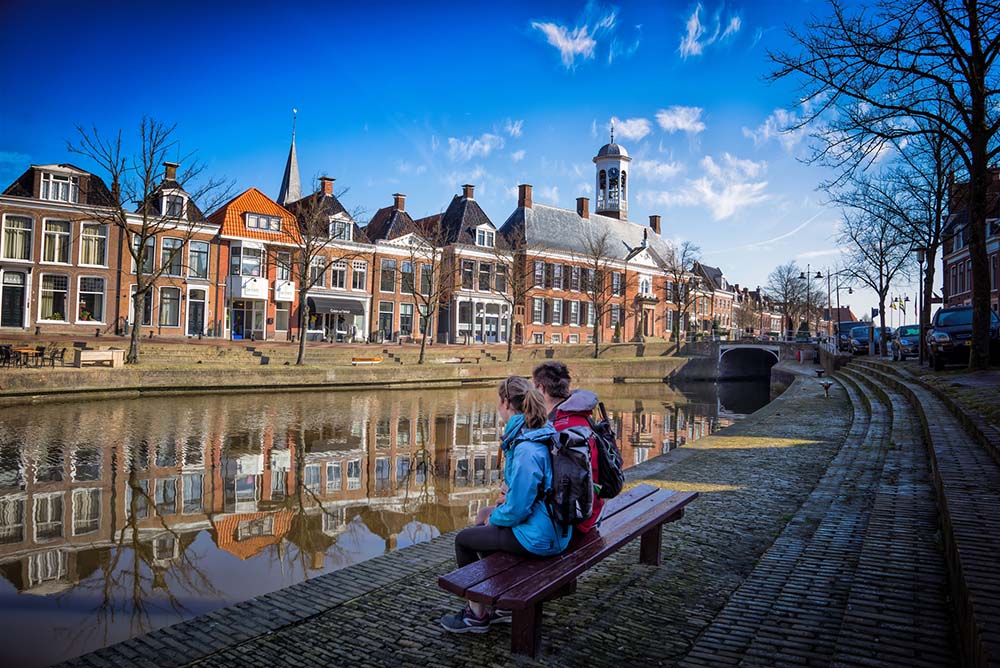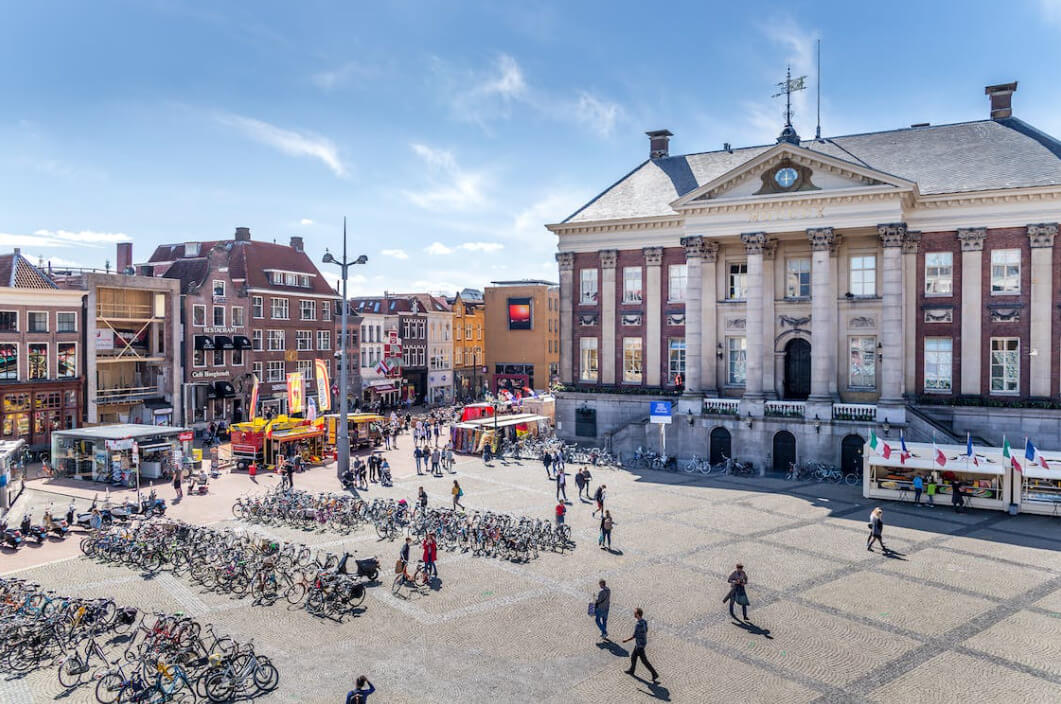PhD: “Polycentric AI Governance & International Politics”

This position is a fully funded PhD in International Relations at the Faculty of Arts, University of Groningen (start date: September 2025). This position seeks applications for PhD projects that broadly fit within the need to explore and understand the contours of AI governance with an emphasis on the geopolitical parameters (including, but not limited to, the United States, China, and the European Union) shaping and being shaped by these governance efforts (see below). Moreover, this project will be empirically driven while integrating normative research to understand the ideals underlying AI development and governance and evaluate the fit between those ideals and existing or emerging governance arrangements.
The PhD Project
This project is concerned with addressing five general themes. First, it seeks to identify where and how AI is becoming globally governed. Second, the project must address why AI is becoming globally governed in particular ways. Third, the project must trace the normative ideals shaping AI-related policy in development and governance. Fourth, the project must address the alignment (or lack thereof) between the global governance arrangements of AI and the normative that those arrangements are expected to meet. Lastly, this project must integrate theoretically and empirically driven research with normative considerations. Specifically, the project will examine where normative ideals are coded within practices and discourses. The candidate will perform empirical research by analysing data to trace emerging governance arrangements and assess how they interact with those normative ideals and whether they can live up to them.
While the overarching topic, themes, and research questions of this project are established here, the PhD candidate is expected to develop their own specific project aligned with the umbrella parameters laid out here. This position seeks applications for PhD projects that broadly fit within the need to explore and understand the contours of AI governance with an emphasis on the geopolitical parameters (including, but not limited to, the United States, China, and the European Union) shaping and being shaped by these governance efforts. Moreover, this project will be empirically driven while integrating normative research to understand the ideals underlying AI development and governance, how AI governance shapes normative fields of interaction and behaviour, and evaluate the fit between those ideals and existing or emerging governance arrangements. This analysis includes systematically capturing regulatory efforts over time and understanding how power concerns shape these policies. Moreover, this project will consider the interaction of governance structures with the normative field of actor behaviour to better understand society's emerging and constantly changing relationship with AI. Indeed, the global governance of AI raises novel questions from normative theorising. Policy goals aiming for AI to be "trustworthy," "value-aligned," and "human-centred" serve as ideals that global governance arrangements should (in principle) aspire towards, entailing these arrangements to be minimally democratic and fair in their procedures and outcomes. For example, the EU’s AI Act aims to “foster trustworthy AI in Europe” that is sold and used in ways that are “safe, respect human rights, and protects health, safety, and the environment” through a set of risk-based rules for developers and users of specific applications of AI.
Methodologically, the project is open to different approaches but must be theoretically and empirically driven. Additionally, given the project's focus on polycentricity, the approach must be sensitive to the heterogeneous and diffuse nature of AI governance, the multi-scalar nature of its organisation and implementation, and its effects on society and international politics. For example, when considering theories of power, the candidate must be sensitive to differences between Western and non-Western contexts. Questions focusing on institutional creation and change will need to emphasise different types of power regimes as much of the existing research assumes a Western-centric lens that often frames non-western regimes within a reductive lens (by assuming that authoritarian regimes like China enjoy greater regulatory and governance freedom given a lack of democratic barriers to implementation, for example). Likewise, the polycentricity of emerging governance architectures for AI may be understood within the concept of a regime complex characterised by partially overlapping and diverse governance arrangements lacking a central institution or hierarchy. Overall, any approach will likely embrace the triangulation of power, interests, and ideas in shaping global governance arrangements.
The following are meant as guiding thematic questions. Candidates should draw on and tailor these questions to fit their background, interests, and expertise.
- How may we describe and measure AI's historical, contemporary, and emerging global governance?
- How are political economies of AI development shaping and being shaped by geopolitical dynamics, regulatory efforts, and broader governance structures?
- Where and how are new regulatory arrangements emerging or dissolving within and across the United States, the European Union, and China?
- What other states, regional actors, international organisations, firms, or other actors play important roles in these governance arrangements?
- How is the global governance of AI organised in relation to serving the ideals of "trustworthy" and "human-centred" AI?
- To what extent are emerging arrangements in AI governance democratic and fair in their procedures and outcomes?
- How does power (including but beyond state power) shape AI policies, politics, and perceptions?
- Given the perception of AI as a “dual-use” technology, what are the core similarities, differences, and tensions in AI governance efforts when comparing the civilian, security and defence fields?
- What are the principal characteristics of global regulatory initiatives in autonomous weapons? How do power differentials, interest constellations, and principled ideas influence those initiatives?
You will be asked to:
- Write and complete the PhD in the specified timeframe (4 years).
- Publish and present several academic articles, popular papers, and potentially other deliverables about your research (in discussion with the supervisory committee).
- Contribute to writing and publishing papers with members of the supervisory committee.
- Teach in the 2nd, 3rd, and 4th years.
- Participate in training activities at the University of Groningen.
Supervisory committee:
The two primary supervisors will be Dr. Benjamin T. Johnson and Dr. Tanja Schweinberger. The promoter will be Dr. Francesco Giumelli, who will offer broad supervision and guidance throughout the project. The candidate will benefit from the supervisory team's diverse experience in international relations, including global governance, security, political economy, and other areas. Moreover, the candidate will benefit from joining one of Europe's largest and most well-respected international relations departments, which contains a breadth of expertise and methodological training.
Organisation
Since its foundation in 1614, the University of Groningen has established an international reputation as a dynamic and innovative university offering high-quality teaching and research. Its 27,000 students are encouraged to develop their own individual talents through challenging study- and career paths. The University of Groningen is an international centre of knowledge: It belongs to the best research universities in Europe and is allied with prestigious partner universities and networks worldwide.
The Faculty of Arts is a large, dynamic faculty in the heart of the city of Groningen. It has more than 5000 students and 700 staff members, who are working at the frontiers of knowledge every day. The Faculty offers a wide range of degree programmes: 15 Bachelor's programmes and over 35 Master's specialisations. Our research, which is internationally widely acclaimed, covers Archaeology, Cultural Studies, History, International Relations, Language and Literary Studies, Linguistics and Media and Journalism Studies.






